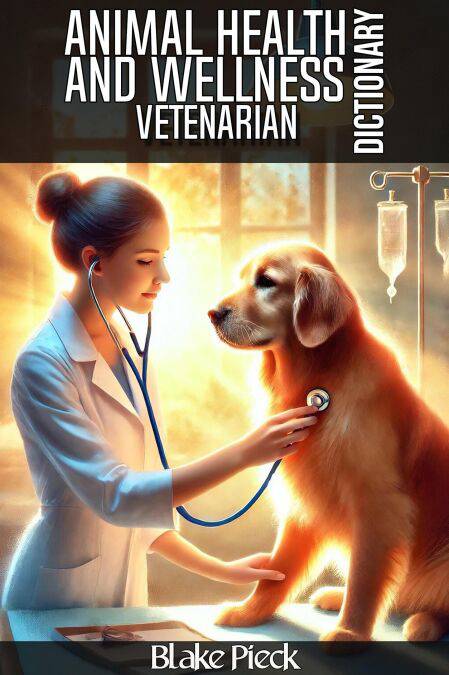
- Retrait gratuit dans votre magasin Club
- 7.000.000 titres dans notre catalogue
- Payer en toute sécurité
- Toujours un magasin près de chez vous
- Retrait gratuit dans votre magasin Club
- 7.000.0000 titres dans notre catalogue
- Payer en toute sécurité
- Toujours un magasin près de chez vous
Description
Animal health and wellness are central to veterinary studies, encompassing the prevention, diagnosis, treatment, and overall well-being of animals. This field emphasizes both physical and mental health, aiming to ensure that animals lead long, healthy, and fulfilling lives. Veterinary professionals use their expertise in medicine, nutrition, behavior, and preventive care to promote optimal health across a wide range of species, including pets, livestock, wildlife, and exotic animals. This dictionary provides comprehensive insight into the key aspects of veterinary care, offering essential knowledge for anyone dedicated to animal health and welfare.
Nutrition and Diet - Nutrition and diet are foundational to animal health, influencing growth, development, immune function, and overall well-being. Proper nutrition ensures that animals receive the essential nutrients required for optimal bodily functions, including vitamins, minerals, proteins, and fats. This section delves into dietary requirements for various species, common nutritional disorders, and the role of specialized diets in managing health conditions.
Parasite Control - Parasite control is crucial for protecting animals from harmful external and internal parasites, such as fleas, ticks, worms, and protozoa. Effective parasite management helps prevent diseases, supports growth, and enhances the quality of life for animals. This section covers preventative strategies, treatments, and the importance of regular monitoring to maintain parasite-free environments for pets, livestock, and wildlife.
Preventive Care - Preventive care focuses on proactively maintaining animal health and preventing diseases before they occur. This includes routine check-ups, early detection of health issues, dental care, weight management, and behavioral assessments. Through preventive measures, veterinary professionals aim to minimize the risk of illness and prolong the animal's life. This section highlights the importance of regular health monitoring, wellness programs, and risk-based care for different species.
Vaccination and Immunization - Vaccination and immunization are critical components of preventive veterinary medicine, helping to protect animals from infectious diseases. By stimulating the immune system to recognize and fight specific pathogens, vaccines prevent outbreaks of contagious diseases, some of which can be life-threatening. This section outlines common vaccines for various species, vaccination schedules, and considerations for immune system health, ensuring the protection of both individual animals and broader populations.
Spécifications
Parties prenantes
- Auteur(s) :
- Editeur:
Contenu
- Langue:
- Anglais
- Collection :
Caractéristiques
- EAN:
- 9798230427780
- Date de parution :
- 30-03-25
- Format:
- Ebook
- Protection digitale:
- /
- Format numérique:
- ePub

Les avis
Nous publions uniquement les avis qui respectent les conditions requises. Consultez nos conditions pour les avis.






